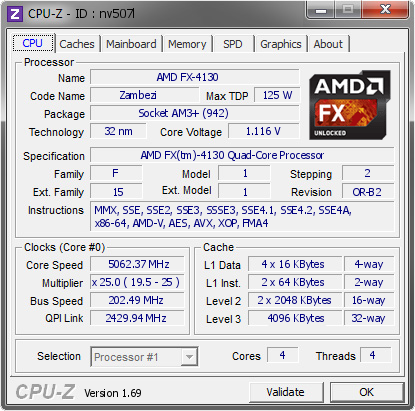- Joined
- Sep 16, 2018
- Messages
- 10,476 (4.31/day)
- Location
- Winnipeg, Canada
| Processor | AMD R9 9900X @ booost |
|---|---|
| Motherboard | Asus Strix X670E-F |
| Cooling | Thermalright Phantom Spirit 120 EVO, 2x T30 |
| Memory | 2x 16GB Lexar Ares @ 6400 28-36-36-68 1.55v |
| Video Card(s) | Zotac 4070 Ti Trinity OC @ 3045/1500 |
| Storage | WD SN850 1TB, SN850X 2TB, 2x SN770 1TB |
| Display(s) | LG 50UP7100 |
| Case | Asus ProArt PA602 |
| Audio Device(s) | JBL Bar 700 |
| Power Supply | Seasonic Vertex GX-1000, Monster HDP1800 |
| Mouse | Logitech G502 Hero |
| Keyboard | Logitech G213 |
| VR HMD | Oculus 3 |
| Software | Yes |
| Benchmark Scores | Yes |
In my limited experience, if you take boost out of the equation and just run static clocks, they are about the same. I can run my 3770K at 4600 just fine, about the max daily all load clock I would run with it. My 5600X does 4600 just fine, and my 5900X does 4500 just fine, these are all load clocks. Like Linpack stable. With my 3770K moving to 4700 is not all load ready as it gets pretty warm, and my 5600X is the same way with 4700. My 5900 is the same with 4600, good for daily, cant run Linpack without hitting the upper 90s. But for BOINC or F@H its fine.








